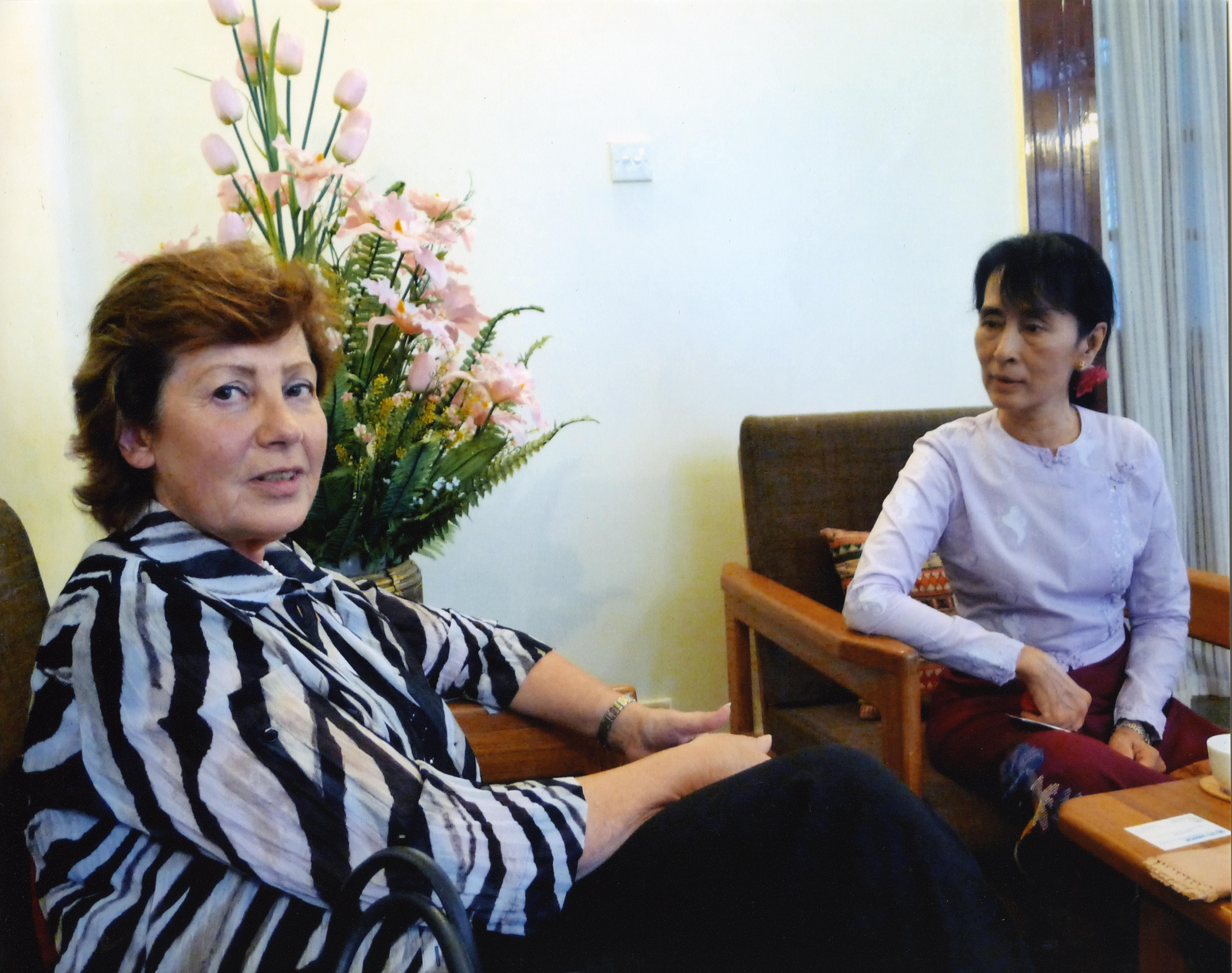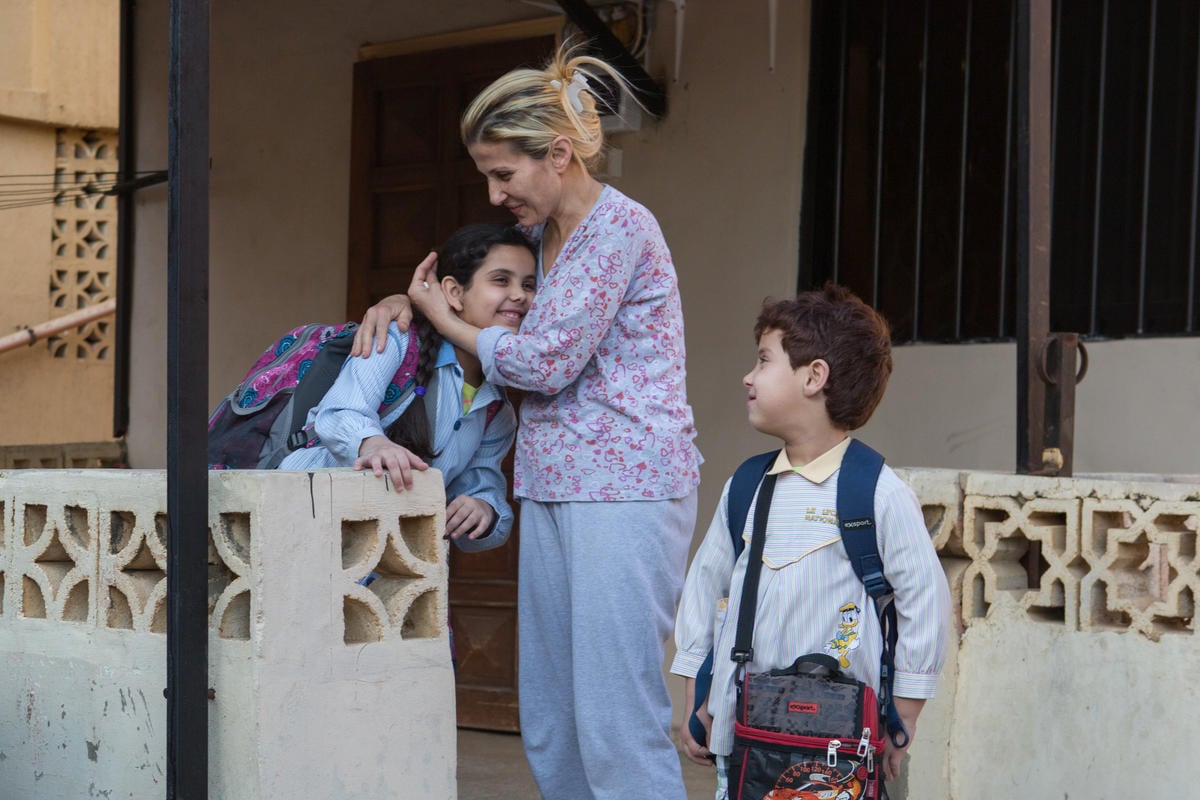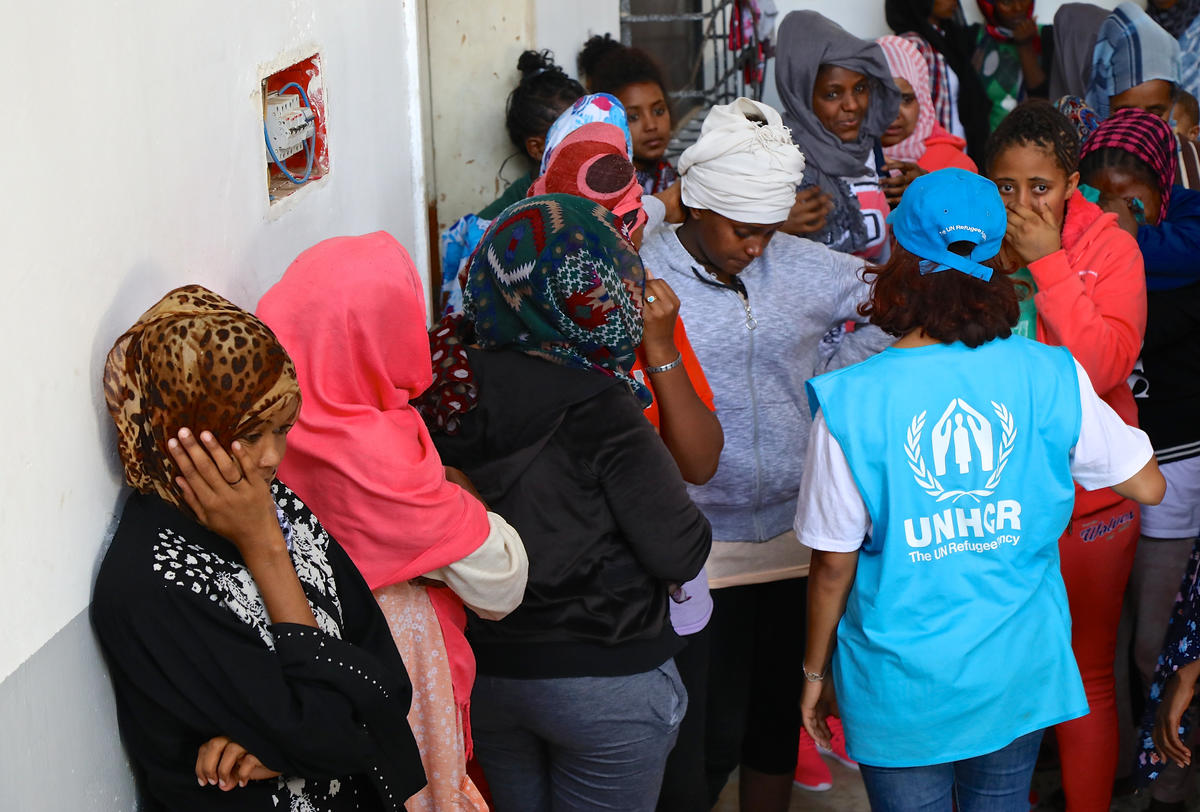Q&A: Top UNHCR official optimistic after "significant" visit to Myanmar
Q&A: Top UNHCR official optimistic after "significant" visit to Myanmar

GENEVA, December 13 (UNHCR) - Erika Feller, the UN refugee agency's most senior protection official, recently paid a significant visit to Myanmar, where UNHCR has operations in Rakhine state in the west, and in the south-east of the country, where displacement along the Mynamar-Thai border is an issue. UNHCR estimates that northern Rakhine state hosts some 750,000 Muslim residents without citizenship. Independent observers have noticed important openings for humanitarian operations in Myanmar since the forming of a new government late last year. For the Assistant High Commissioner, this was reflected in more open and productive meetings with ministers and other senior officials and the permission given her to meet opposition leader Aung San Suu Kyi. Feller spoke to UNHCR public information officers Babar Baloch and Leo Dobbs about her trip: Excerpts from the interview:
Why did you go to Myanmar at this particular time?
My trip to Myanmar was, in a sense, a follow on from a trip I made earlier in the year to Thailand. The focus of the Thailand trip was the border camps, which are hosting a large number of refugees from Myanmar. There's a growing sense that there are many opportunities that did not exist before to find, or more actively promote, solutions to this protracted refugee problem - solutions which should eventually enable the closure of the camps. We wouldn't have talked about this a year or so ago.
Why is that happening?
There is a new government in Myanmar and that government has made very important overtures to the international community and, more importantly, to its own people since it came into office. There have been some extremely positive signs that things are changing in Myanmar. We have seen the release of political prisoners; we have seen reform of the electoral laws; we have seen reform also of labour laws; and the creation of a national human rights commission. All of these are significant steps away from the policies of the past government. They collectively represent, in our view, an opening up to international concerns and they create opportunities for us to develop further our relationship with the new government and to put in place programmes supporting and leading to sustainable return for people outside Myanmar.
Where did you go and who did you meet on this visit?
The trip was exceedingly interesting because it was very varied. It took me to the south-east states of Myanmar to visit the villages where refugees now on the other side of the [Thai-Myanmar] border come from, and to see the sorts of programmes that we have been putting in place to help the residents as well as to create better opportunities for returnees.
We visited a school, a government-supported vocational training project for women, and a hospital, where I saw how relatively small projects can qualitatively improve health care, education and livelihood possibilities. Most of our projects are of the quick impact sort, such as the provision of water purification pumps, but they do make a difference and they are appreciated.
I also had useful discussions with a number of very senior government officials in [the Myanmar capital] Naypyidaw. I met with the minister of foreign affairs, the minister of immigration, members of parliament. I met also with senior officials dealing with border affairs to discuss a wide-ranging set of issues, in addition of course to meeting officials at the local level. And my visit included a rewarding discussion with Aung San Suu Kyi.
Tell about your meeting with Aung San Suu Kyi
She is a very charming person and she spoke with us directly, openly and pragmatically about issues on our agenda in our two main programme areas in Myanmar. We discussed the problems of northern Rakhine residents who are yet to achieve full citizenship, as well as obstacles to return [from Thailand] in south-east Myanmar. She placed a primacy on reconciliation actively being pursued as well as border insecurity being addressed and there being more investment in sustainable peace throughout the country. .
She placed considerable emphasis as well on improving the welfare of the population broadly throughout Myanmar. So we talked about the kind of activities UNHCR can do within its mandate that would contribute to such objectives. She was forthcoming in saying she would be supportive of UNHCR activities in these areas. I found it, from a professional point of view, a valuable discussion. From a personal point of view, it's rare in life that one meets a person of her calibre. So for me it was a very important experience at several different levels.
What about your talks with government officials?
The tone of the dialogue was upbeat. The people I met were responsive to the quite modest requests that we came with, including the extension of our memorandum of understanding with the government on our operations in north Rakhine state. I left Myanmar believing that it will happen. We also looked at the possibility of stabilizing our presence in the south-east of the country. I think there was support for maintaining a continuing international UNHCR presence. We talked a little about loosening up the administrative requirements for UNHCR staff to travel, to get entry visas. There was certainly a preparedness to look at this, which is also positive.
We had a more general discussion about the situation of people in northern Rakhine state who from our prospective should be viewed as actually or potentially stateless. Our goal is to work with the authorities to find a path for these people leading to full citizenship of the country. I have had many discussions in the past with delegations from Myanmar on this issue. I think these were the most positive to date. We hope that path is starting to appear.
How did this compare to your previous visits to Myanmar?
I left with certainly more optimism, certainly more enthusiasm about the possibilities for UNHCR projects and UNHCR activities in Myanmar working together with the government. There are signs of real change . . . I came away with a feeling that there might even be an end in sight to the protracted refugee situation.








